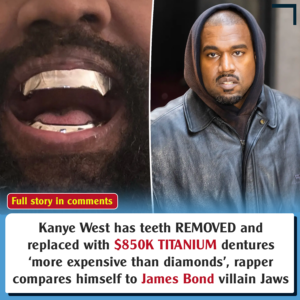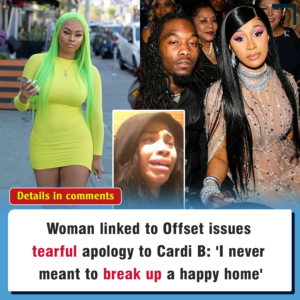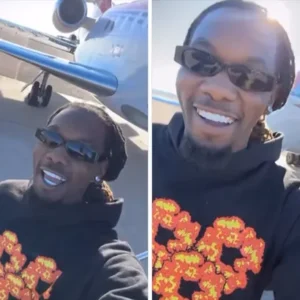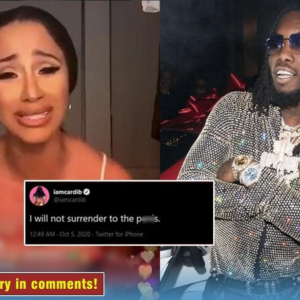The Fast And Furious franchise star Vin Diesel contemplates on his late co-star and partner-in-crime Paul Walker.

BEIJING — If you’d have told us back in 2001 that The Fast And The Furious franchise would be spawning its seventh instalment 14 years later, we’d laugh in your face and think you’ve drank too much Corona (the favorite product placement beer in the movie by Vin Diesel’s character Dom Toretto).
A lifetime of fast cars, cringe-worthy dialogue and many an incredulous action sequence later, we’re the ones eating our words as we sit opposite an emotional Diesel, who’s in Beijing to promote exactly that.
Even with an ever-changing list of actors, writers, directors and producers, the franchise about street racers-turned-elite squad of fast driving superheroes is still going strong, clocking billions of dollars in the international box office with each movie.
However, Furious 7 — as it’s also known — is markedly different. It marks a poignant end of an era and the epic story arc of the friendship between Diesel’s character Dom and Brian O’Connor, who was played by Paul Walker, the co-star who passed away in a car accident in 2013, midway through filming the movie at the age of 40.
A fan favorite and the one star who was loyal to the franchise (he appears in all installments except the second one), Walker’s death had been heartbreaking for fans, cast and crew alike — especially since it’s a franchise built on family, brotherhood togetherness and survival at all costs.
The Furious 7 cast has been publicly broken up about Walker’s death. Diesel, in particular, has previously broken down in front of the cameras and during our interview, choked up many times.
“This movie is emotionally so much more powerful that anything the world would expect,” said Diesel, who had named his new baby girl Pauline in honor of his friend.
“It’s the seventh chapter and it marks the end of an era in many ways. We had a good 15-year-run. It started off the Brian and Dom duo, so it’s very special and bitter sweet and we’re all very proud.”
He paused, holding back the tears, before quipping in true Vin Diesel-style: “Hey, it’s Fast And Furious — you’re not supposed to cry!”

Q: You and Paul were best friends, brothers, family. Can you share something about Paul Walker that nobody else knows about?
A: There is so much… (pauses) There are so many memories. First of all, you have to understand that I have a lot of best friends and I have a lot of brothers. And I have a really big family. But I only had one Paul Walker. The whole cast and crew will tell you beautiful stories about who he is and share great tales of his philanthropic heart. But very selfishly for me, he was the only one in my universe who knew what was like to go from nobody to somebody. From anonymity to icon. There was nobody else I ever talk to about it, nobody who could ever understand.
And I’ll tell you something that nobody knows. What happens when you grow up poor, unfortunately, is that when you’re suddenly successful, money comes with that success. Everyone thinks money changes the person. That is obvious because, of course, it’s going to change the person’s life and lifestyle. What is less obvious is how it changes everyone else around you. If your code is not to think (of) money, not wear jewelry, wear a simple little T-shirt that you made that you think is cool, it all doesn’t matter — everyone else around (you) will be looking at your money. And sometimes (even) look past you at your money.

And the people who love you most may not realise how sensitive, in this case, me or Paul Walker, specifically, could be about that. We are very similar in the sense that we are not about airs. No expensive watches — we are just not those people.
And for a month before we started filming, I felt my whole family and everyone around me expecting me to do everything for them. There was a certain level of entitlement. In October, a month before the tragedy happened, I remember being so frustrated with my mother. I have the best mother in the whole world, but I was feeling that my mother wasn’t understanding how much pain it was causing me when everyone I knew felt entitled. And the stress of having to provide for more people than I could count.
There was only one person I could call, who was dealing with it himself. And when my mother flew to the set, I called Paul to come over and talk to my mother. When he asked why, I replied my family loves me but I was feeling just a little exploited. So he went down to have a conversation with my mother the only way he could. And Paul Walter made my mother understand how I felt. I only have one Paul Walker. I only have one.
Q: You asked us to raise our hands if we cried at the end of the movie, so we’re assuming you cried, too.
A: You want to know the truth? The truth is that I’ve been crying for the last year and a half. And obviously, when I saw the movie. Even though I’m a producer, even though I started the franchise 15 years ago, I couldn’t stop crying. And the thing about the tears that come from Furious 7 is that you don’t just cry in the theatre, wipe them off and leave. When you think about it later, you cry again. And so I would raise my hand with you.
Q: Tell us about See You Again, the emotional last song used in the movie’s ending.
A: We have a great music team at Universal. The song is by Wiz Khalifa and that guy, Charlie Puth. Let me tell you an interesting story. I was at an Oscar party when he came up to me and I didn’t know who he was. He said to me, “Hey, I just scored the ending of your movie.” This was back in February when no one saw the movie yet so I was like, “You saw the movie?” He replied, “Yeah and I cried and cried.” He was the first person to tell me that he cried. He also told me that he wrote the song in 10 minutes. I asked him how did he manage to write such a beautiful song in 10 minutes? And he answered, “I just lost a friend myself in a car crash.” That’s how he wrote the song and that’s why he was able to put to music what the cast and the rest of the world felt.
Q: It must have been so difficult given the tragedy, but was this the ending you were all okay with? Did you work closely with director James Wan to make that happen?
A: It wasn’t supposed to end like that obviously. Paul had already finished 85 per cent of the scenes and he didn’t really need to shoot much more. But we did have to finish a movie. More importantly, we had to slightly shift the third act to accommodate his legacy. Luckily, James just knocked it out of the park.

But I also have to give credit to (director) Justin Lin, who was my partner for the three films before that. This ending never would have been possible had we not incorporated the theme of family throughout the different films. Specifically for Brian O’ Conner (Paul Walker’s character). You see that strong thread earned over the previous films in many specific scenes. So yes, James Wan was the best director and best partner for this. I mean, he allowed us to dress in Tom Ford, Letty (Michelle Rodriguez) in a dress, and classed us all up. Plus he really didn’t mind taking shots at James Bond in the second act and had fun. He embraced all that.
But it’s been 15 years. And I can give (director) Rob Cohen credit for the first one but I’ll give Justin Lin credit for standing by those themes of family and allowing them to breathe in our saga. And if they didn’t breathe in our saga, we wouldn’t be able to do the miraculous, which is to end the movie like we did.
Q: It’s truly amazing how the film handled what it needed to deal with in the way it did.
A: Yeah, you couldn’t imagine how many other studios, directors, writers, producers, would have looked at the tragedy and say, “Let’s say a bad guy caused the demise of Brian and we send Dom on a revenge trip and that’ll give us another movie.” But that’s not what we did. And the movie, the saga, the mythology that is unafraid to say, family is the most important thing in life. What better heaven than for Brian O’ Conner to go off and commit to his own family? And that was just to service all the work that had been put in that up to that point.
So we were very lucky. A lot of studios wouldn’t have allowed us to have a conversation about fatherhood like Paul and I did in Fast Five, right in a middle of a big action movie. The studio was even supportive of that. And we were all able to create an ending that you all cried in. When was the last time you all came out of a movie in which that many of you were emotionally affected? Maybe a tearjerker but that tearjerker didn’t make you laugh as much as this movie did. It didn’t have the action like this movie did.
And here’s something that all the film critics in the world and all the film award ceremonies in the world overlooked. There’s a magic in making movies that has been severely overlooked as an art form and a master art. And that is the ability to make a whole audience cheer. So what Furious 7 does is that it makes you laugh, it makes you cry, it makes you cheer. It’s unique to the saga and that’s why we’re so proud of what Furious 7 is.





